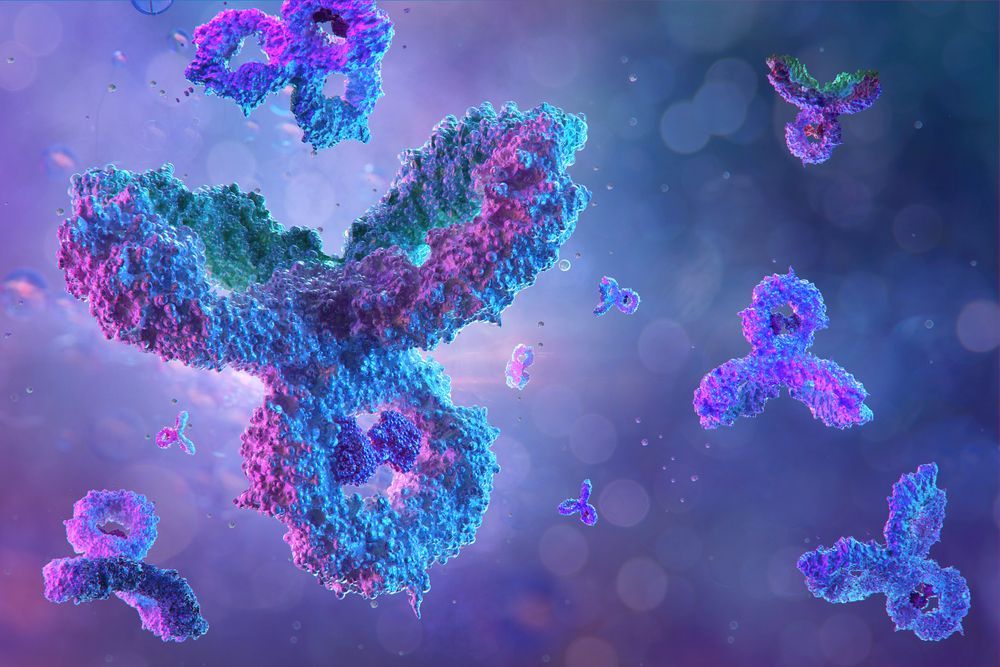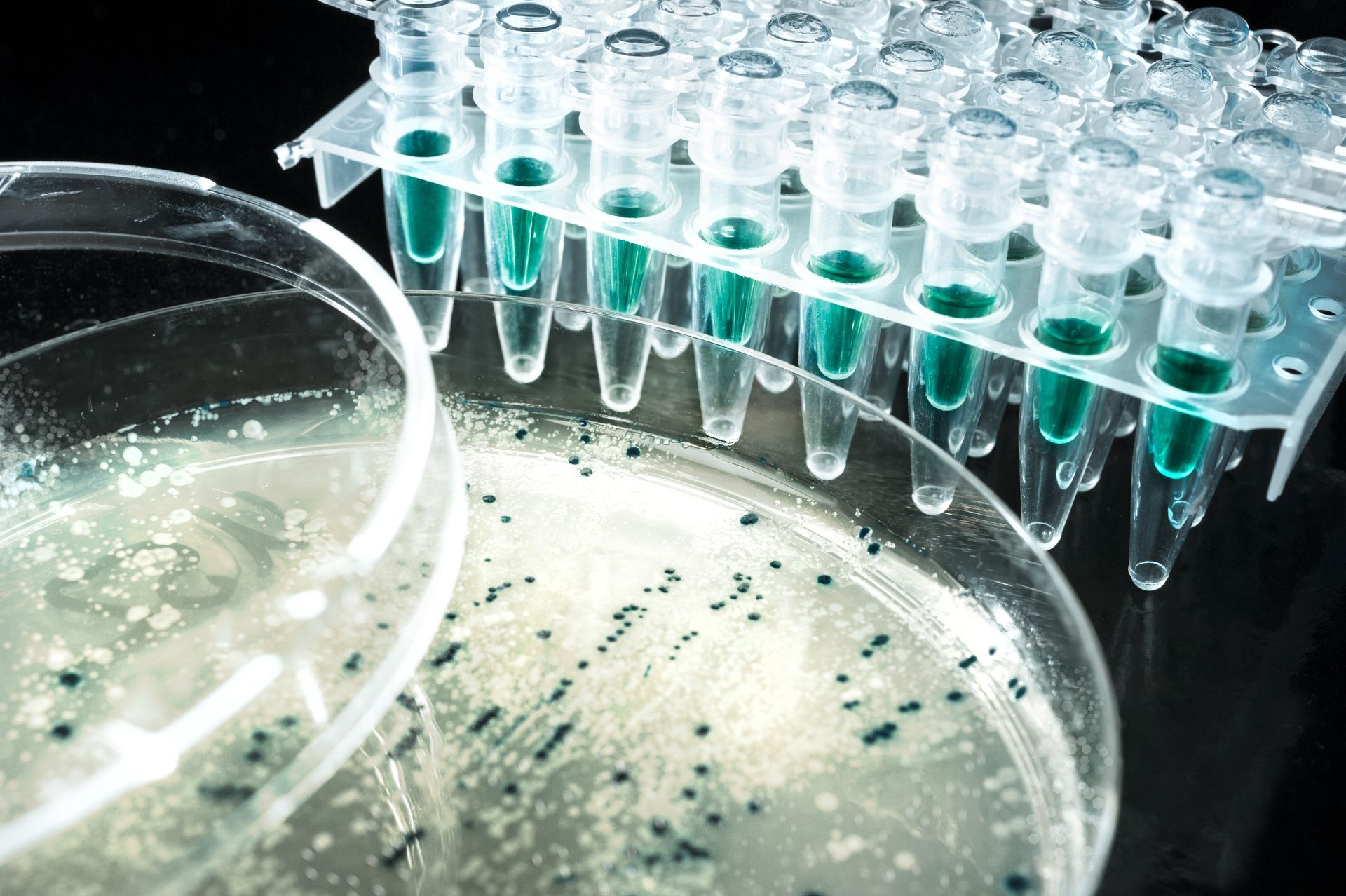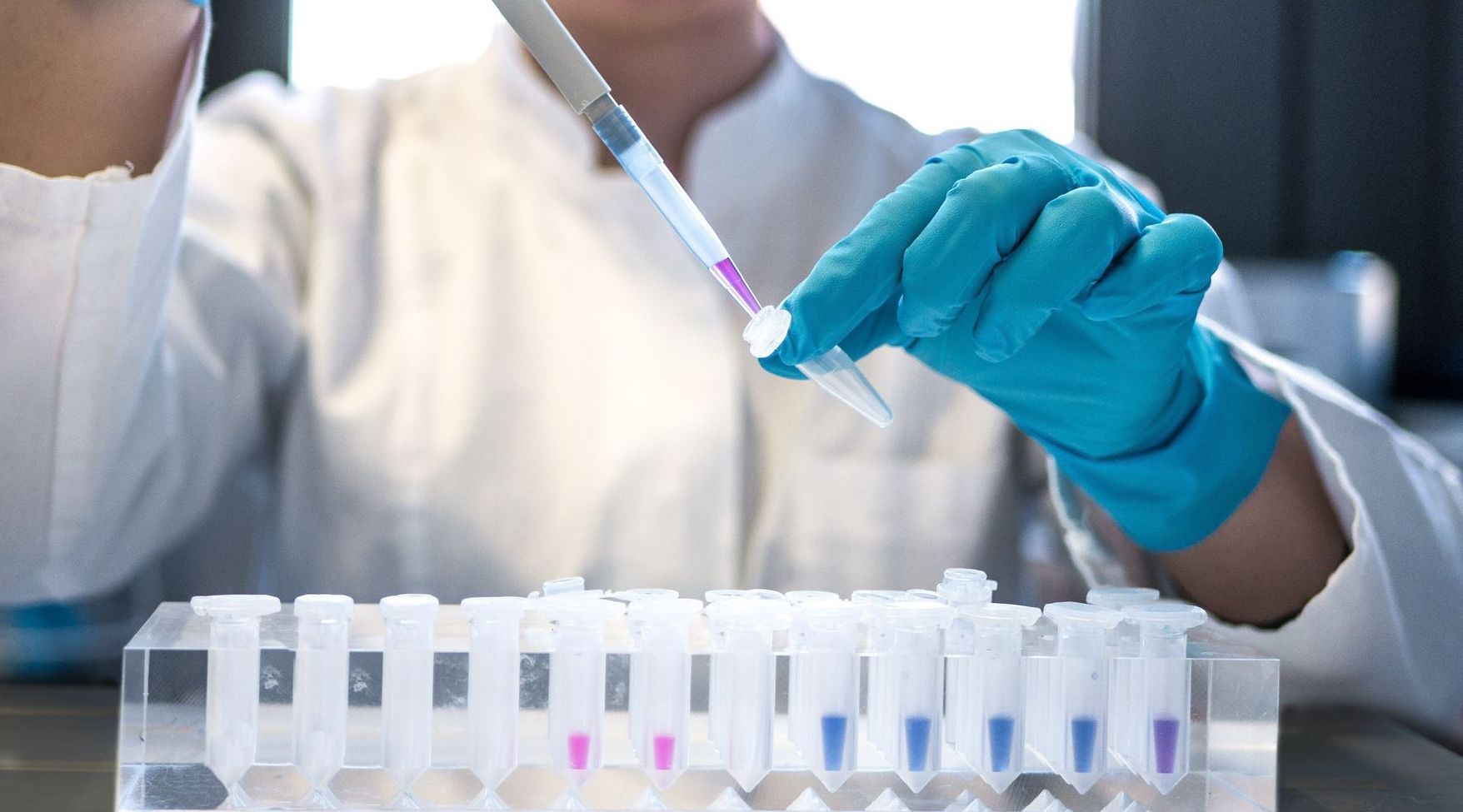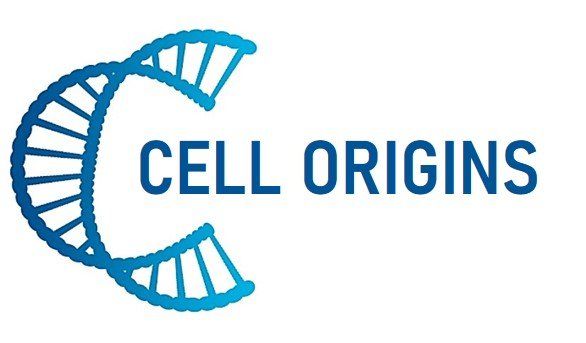Unlock Your Drug Discovery!
Unmatched Quality
At Cell Origins, we understand that peptide and antibody discovery can be a challenge. To help overcome these challenges, we are dedicated to providing high-quality phage display libraries that are rigorously controlled to obtain the lowest rate of stop codons and other unintended sequences.


Leading Experts in Phage Display
At Cell Origins, we understand the importance of using high-quality libraries for biopanning experiments. Our scientists have decades of experience and expertise in phage display technology and were trained at the University of Missouri by the pioneers in the field.
Having carried our numerous successful biopanning experiments, we strive to provide the best solutions for other researchers. With our phage display libraries, you can spend less time and cost on your affinity selections and instead focus on leveraging your selected peptides and antibodies.
Explore Our Libraries

The Success of Linear Peptides
Peptides are a powerful and versatile tool offering a wide range of therapeutic and diagnostic applications. In fact, numerous peptides have successfully been used as targeting agents of various biomarkers to treat and image disease.
Cell Origins provides premade linear peptide libraries based on the f3TR1, fUSE5, and f88-4 phage display vectors originally created by Nobel Prize winner Dr. George Smith.
We offer newly created libraries of validated high quality and diversity, as well as access to the original libraries by Dr. George Smith.

Harness the Power of Cyclic Peptides
Cyclic peptides are increasingly being used as therapeutic agents. The cyclic structure reduces peptide degradation and often results in improved binding affinity due to increased structural rigidity. Cyclic peptide libraries are thus an invaluable resource in drug discovery research.
Cell Origins provides premade cyclic peptide libraries based on the f3TR1 and f88-4 phage display vectors originally created by Nobel Prize winner Dr. George Smith.
We offer newly created libraries of validated high quality and diversity, as well as access to the original libraries by Dr. George Smith.

Endless Possibilities with Customized Libraries
Our custom libraries are made with built-in options for post-selection analysis such as biotinylation, expression of soluble ligands, affinity isolation, and more. This allows you to get the most out of your peptide or antibody phage display library and get the best results. Our experts are here to help you every step of the way, ensuring that you get the most optimal phage display library for your needs.
Cell Origins provides custom solutions to create advanced peptide and antibody libraries. We customize each part of the phage display vector to streamline your biopanning strategy and binding analyses.

Unparalleled Affinity Selections with f3TR1 Libraries
The f3TR1 vector is an ideal choice for phage display libraries. The f3TR1 libraries offer superior trypsin release of phage particles with little to no recovery bias. The resistance of the phage particle to trypsin allows for the complete release of the peptide or antibody while maintaining the infectivity of E. coli, thereby leveraging unparalleled affinity selections.
Cell Origins provides premade linear and cyclic peptide f3TR1 phage display libraries. We also offer customized peptide and antibody libraries based on the f3TR1 vector with several built-in options to streamline biopanning experiments and post-selection screening.

Cost-Effective Phage Display Using Original Libraries
The fUSE5 peptide phage display libraries are among the pioneering work by Nobel Prize winner, Dr. George Smith. He developed the libraries to enable affinity selections of phages that display tight-binding peptides. These libraries have been used in numerous studies to identify peptides for therapeutic and diagnostic purposes, and are an excellent and cost-effective choice.
Cell Origins distributes the original fUSE5 libraries created by Dr. George Smith.

Get Started with Coat Protein VIII Phage Display
Created by Nobel Prize-winning Dr. George Smith, the f88-4 libraries are type 88 phage display libraries that express a foreign peptide insert on coat protein VIII (pVIII). The libraries were developed to facilitate the identification of high-affinity peptides via biopanning experiments and have been used in several published research studies. These libraries are an excellent and cost-effective choice for type 88 phage display.
Cell Origins distributes both linear and cyclic peptide f88-4 libraries originally created by Dr. George Smith.
What Other Scientists Say About Us

The scientists at Cell Origins truly utilized their expertise to ensure that we chose the right peptide library. They listened to our needs, took the time to learn about our project, and then met with us to go over the advantages of different phage display strategies. We were able to identify usable peptides for the first time since venturing into phage display.
Principal Scientist

Whenever I had questions, they [Cell Origins] were happy to provide comprehensive answers and even met with me several times to help me with my protocol on how to amplify and use the library for phage display selections.
Ph.D. Candidate

We worked with Cell Origins to create a customized peptide library. They worked with us as a team, and we were finally able to successfully identify peptide sequences with proven binding to a cancer biomarker. I highly recommend Cell Origins for all your phage display needs!
Senior Scientist
-
Published Work
Axiak-Bechtel, S. M., Leach, S. B., Scholten, D. G., Newton-Northup, J. R., Johnson, B. J., Durham, H. E., Gruber, K. A., Callahan, M. F. (2021). Pharmacokinetics and safety of TCMCB07, a melanocortin-4 antagonist peptide in dogs. Pharmacology Research & Perspectives. Vol. 9(3)
Asar, M., Franco, A., Soendergaard, M. (2020). Phage Display Selection, Identification, and Characterization of Novel Pancreatic Cancer Targeting Peptides. Biomolecules. 10(5), 714
Asar, M., Gunby, T., Franco, A., Woodson, C., Soendergaard, Mette. (2020). Identification of an Indiscriminate Peptide by Phage Display Technology. The FASEB Journal 34:1_supplement, 1-1
-
More
Asar, M., Newton-Northup, J., Deutscher, S., Soendergaard, M. (2019). Ovarian Cancer Targeting Phage for In Vivo Near-Infrared Optical Imaging. Diagnostics, 9, 183.
Newton-Northup, J.R., and Deutscher, S.L. (2017). Bacteriophage for the Development of Novel Tumor-Targeting Agents with Specific Pharmacokinetics and Imaging Applications. Methods in Molecular Biology in Biosensors and Biodetection.
Newton-Northup, J.R., and Deutscher, S.L.. (2016). Cytotoxic Tumor-Targeting Peptides From In Vivo Phage Display. Combinatorial Chemistry & High Throughput Screening. Vol. 19(5): 370–377
García, M. F., Zhang, X., Shah, M., Newton-Northup, J., Cabral, P., Cerecetto, H., and Quinn, T. (2016). 99mTc-bioorthogonal click chemistry reagent for in vivo pretargeted imaging. Bioorganic & Medicinal Chemistry. Vol. 24(6): 1209–1215
Newton-Northup, J.R., Dickerson, M.T., Kumar, S.R., Smith, G.P., Quinn, T.P., And Deutscher, S.L. (2014) In vivo bacteriophage peptide display to tailor pharmacokinetics of biological nanoparticles. Molecular Imaging and Biology. 16(6), 854-864.
Soendergaard M., Newton-Northup J. R., Deutscher S. L. (2014): In Vivo Phage Display Selection of an Ovarian Cancer Targeting Peptide for SPECT/CT Imaging. American Journal of Nuclear Medicine and Molecular Imaging. 4(6): 561–570.
Soendergaard, M., Newton-Northup, J.R., and Deutscher, S.L. (2014) In vitro high throughput phage display selection of ovarian cancer avid phage clones for near-infrared optical imaging. Combinatorial Chemistry and High Throughput Screening. 17(10).
Newton-Northup, J.R., and Deutscher, S.L. (2013). Contending With Target Unrelated Peptides from Phage Display. Journal of Molecular Imaging & Dynamics. Vol. 2(2):
Newton-Northup, J. R., Dickerson, M. T., Ma, L., Besch-Williford, C. L., Deutscher, S. L. (2013). Inhibition of metastatic tumor formation in vivo by a bacteriophage display-derived galectin-3 targeting peptide. Clinical & Experimental Metastasis. Vol. 30:119–132
Newton-Northup, J.R., and Deutscher, S.L. (2012) Contending with target unrelated peptides from phage display. Journal of Molecular Imaging and Dynamics. 2(2).
Soendergaard, M., Newton-Northup, J.R., Palmier, M.O., and Deutscher, S.L. (2011) Peptide phage display for discovery of novel biomarkers for imaging and therapy of cell subpopulations in ovarian cancer. Journal of Molecular Biomarkers and Diagnosis, S:2.
Newton-Northup, J.R., Figueroa, S.D., and Deutscher, S.L. (2010). Streamlined in vivo selection and screening of human prostate carcinoma avid phage particles for development of peptide based in vivo tumor imaging agents. Combinatorial chemistry & high throughput screening. 14(1):9-21
Deutscher, S. L., Dickerson, M., Gui, G., Newton, J., Holm, J. E., Vogeltanz-Holm, N., Kliethermes, B., Hewett, J. E., Kumar, S. R., Quinn, T. P., Sauter, E. R. (2010). Carbohydrate antigens in nipple aspirate fluid predict the presence of atypia and cancer in women requiring diagnostic breast biopsy. BMC Cancer. Vol. 10(519)
Newton-Northup, J.R., Figueroa, S.D., Quinn, T. P., and Deutscher, S.L. (2009). Bifunctional phage-based pretargeted imaging of human prostate carcinoma. Nuclear Medicine and Biology. Vol. 36(7):789-800
Jin, X., Newton, J. R., Montgomery, S., Smith, G. P. (2009). A generalized kinetic model for amine modification of proteins with application to phage display. Biotechniques. Vol. 46(3):175-182
Newton-Northup, J.R., and Deutscher, S.L. (2009). In vivo bacteriophage display for the discovery of novel peptide-based tumor-targeting agents. Methods in Molecular Biology. Vol. 504:275-90.
Newton-Northup, J.R., and Deutscher, S.L. (2008). Peptide Phage Display. Handbook of Experimental Pharmacology: Molecular Imaging I. Vol. 185 Pt 2:145-163.
Newton, J. R., Miao, Yubin., Deutscher, S. L., and Quinn, T. P. (2007). Melanoma Imaging with Pretargeted Bivalent Bacteriophage. Journal of Nuclear Medicine. Vol. 48(3):429-436
Newton, J. R., Kelly, K. A., Mahmood, U., Weissleder, R., and Deutscher, S. L. (2006) In vivo selection of phage for the optical imaging of PC-3 human prostate carcinoma in mice. Neoplasia. 8(9), 772-780.
Contact Us Any Time
Contact Us
We will get back to you as soon as possible
Please try again later
